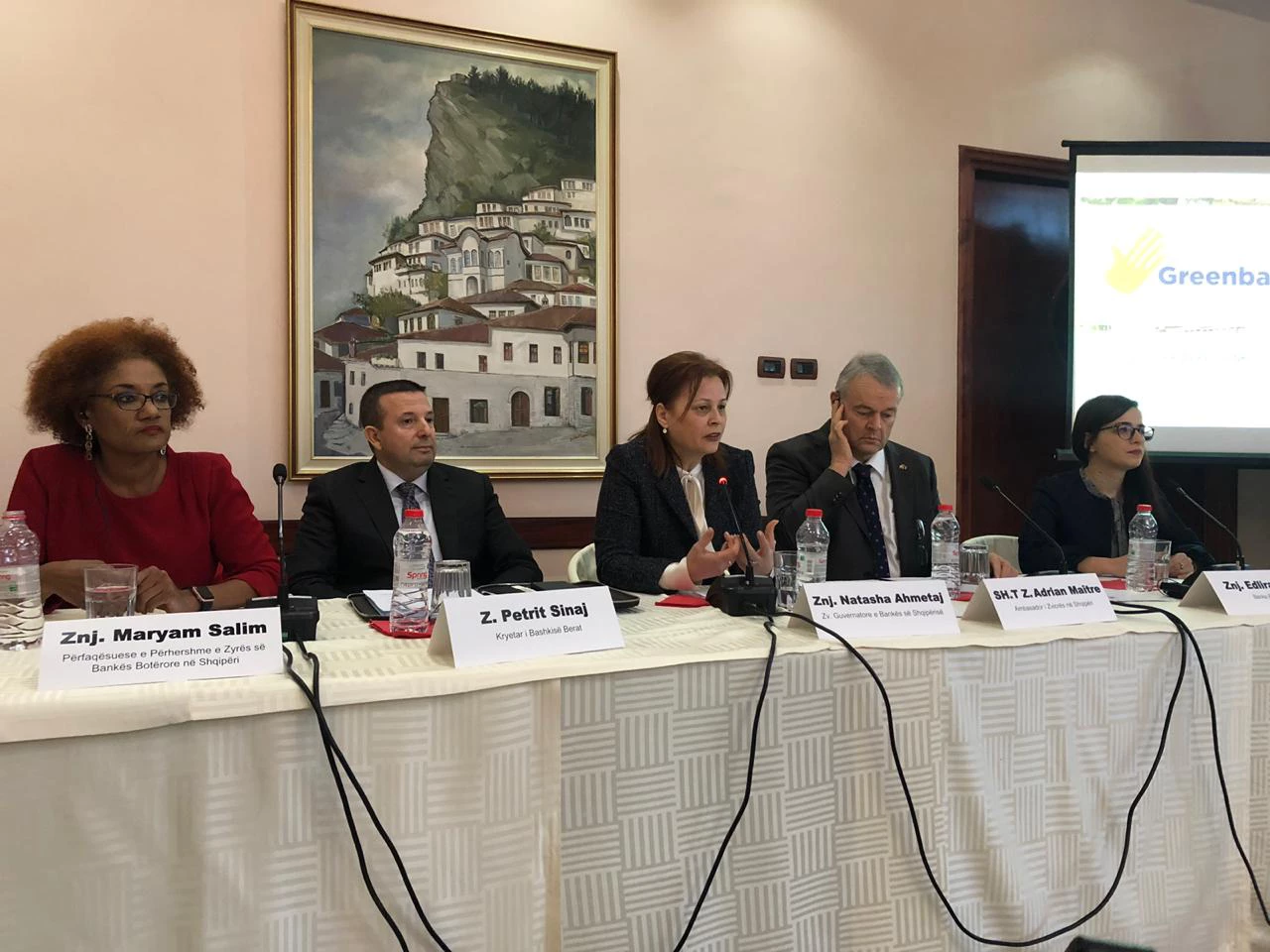In observance of the International Migrants Day, Dec 18

“Mother, you shall not fear as long as your sons live in Germany” goes a popular folk song in Kosovo. Its equivalent in Bosnia and Herzegovina says “I am from Bosnia, take me to America” and in Albania the most famous morning show goes by the motto “Love your country, like Albania loves America”. In these countries, migration and remittances are synonyms of economic prosperity in the homeland. More than 40 percent of the population of these countries lives and works abroad for decades, and regularly sends money to their families back home. Remittance inflows in 2018 are estimated to range from $1.3 to $2.3 billion in these countries, exceeding foreign direct investment and accounting for 10 to 16 percent of the GDP. [1]
And remittances overall represent a fifth to one third of the average family income in these countries. [2] To a large extent, these funding flows complement consumption needs and a small share goes to support the cost of education, paying back a loan, or for housing improvements – such as repairing the roof. However, this is only part of the story.
Effectively channeling and managing remittances is an ongoing challenge for families in these countries. Beyond official statistics, a large portion of remittances is sent via unregulated channels, due to lack of trust and high costs of transactions. In addition, lack of information and financial education further reinforces these challenges, limiting choice and increasing risks. The majority of the families which are the most dependent on remittances do not have the means or guidance to engage in long term planning and making effective use of the funding flows they receive. They are stuck outside the financial system, and ultimately perpetually depend on these flows.
With this context in mind, the World Bank Payment Systems Development Group is implementing Project Greenback 2.0 in selected remittance champion cities (Berat, Albania; Prizren, Kosovo; Gradacac, Bosnia and Herzegovina) through the Remittances and Payments Program funded by the Swiss Government. Bringing together migrants, their families, financial service providers and local stakeholders, Greenback 2.0 Remittance Champion Cities combine financial education with stakeholder coordination to promote change inspired by the real needs of the ultimate beneficiaries of international remittances and improve the overall efficiency of the international remittances market. Current research on the ground indicates some interesting lessons.

“Mother, you shall not fear as long as your sons live in Germany” goes a popular folk song in Kosovo. Its equivalent in Bosnia and Herzegovina says “I am from Bosnia, take me to America” and in Albania the most famous morning show goes by the motto “Love your country, like Albania loves America”. In these countries, migration and remittances are synonyms of economic prosperity in the homeland. More than 40 percent of the population of these countries lives and works abroad for decades, and regularly sends money to their families back home. Remittance inflows in 2018 are estimated to range from $1.3 to $2.3 billion in these countries, exceeding foreign direct investment and accounting for 10 to 16 percent of the GDP. [1]
And remittances overall represent a fifth to one third of the average family income in these countries. [2] To a large extent, these funding flows complement consumption needs and a small share goes to support the cost of education, paying back a loan, or for housing improvements – such as repairing the roof. However, this is only part of the story.
Effectively channeling and managing remittances is an ongoing challenge for families in these countries. Beyond official statistics, a large portion of remittances is sent via unregulated channels, due to lack of trust and high costs of transactions. In addition, lack of information and financial education further reinforces these challenges, limiting choice and increasing risks. The majority of the families which are the most dependent on remittances do not have the means or guidance to engage in long term planning and making effective use of the funding flows they receive. They are stuck outside the financial system, and ultimately perpetually depend on these flows.
With this context in mind, the World Bank Payment Systems Development Group is implementing Project Greenback 2.0 in selected remittance champion cities (Berat, Albania; Prizren, Kosovo; Gradacac, Bosnia and Herzegovina) through the Remittances and Payments Program funded by the Swiss Government. Bringing together migrants, their families, financial service providers and local stakeholders, Greenback 2.0 Remittance Champion Cities combine financial education with stakeholder coordination to promote change inspired by the real needs of the ultimate beneficiaries of international remittances and improve the overall efficiency of the international remittances market. Current research on the ground indicates some interesting lessons.
1. Use of regulated channels should come at an affordable price
Despite the usage of unregulated channels, like bus and taxi drivers, migrants are becoming increasingly aware of the need for secure and fast payments. Lack of time, distance to access points and need for privacy in financial matters, are all good incentives for migrants and their families to use regulated channels. However, the costs of sending $200 or equivalent to Albania, Bosnia and Herzegovina, and Kosovo, on average, exceed 7 percent of the transaction value and are among the highest in the Europe and Central Asia region, [3] which is a major barrier for the migrants and their families.2. Financial inclusion requires a value proposition
Account ownership and financial services in general are abstract terms for remittance recipients, as the majority of the financially excluded in these countries state that they are too poor to use financial services (especially in Kosovo and in Albania). Therefore, financial inclusion requires a value proposition that can be connected in a tangible way to the concrete needs of the poor.3. Financial education for remittances is a two-way street
Remittance senders and recipients typically rely on each other to gain information on the various options for sending and receiving remittances. In many cases, this information flow is incomplete at best and distorted at worst, given the known attitudes and behaviors of these segments with regards to financial services. Therefore, it is important to engage both the recipients and the diaspora to promote informed decision making.International Migrants Day in 2018
On International Migrants Day, Greenback 2.0 teams from Western Balkans are meeting in Berat, with the participation of public and private sector stakeholders, representatives from the World Bank and the Swiss government along with migrants and families. Remittances represent a huge part in the lives of some of these families complementing their consumption needs and supporting other specific expenditures. Raising awareness for regulated channels, increasing transparency regarding fees involved in sending remittances, building trust in the financial sector, help financial service providers gain a deeper understanding of the needs of remittance recipients, and encourage them to develop customer-oriented financial services for this target population are among the main objectives of Project Greenback 2.0 in the Western Balkans. The Greenback Event in Berat on December 18 aims at bringing together different stakeholder as part of a long list of activities.Remittances and Payments Program
The Remittances and Payments Program (RPP) aims to increase the efficiency of retail payments in selected countries, with a specific focus on international remittances. It provides technical assistance in support of policy and regulatory reforms and capacity building for government agencies and ministries, regulators, financial institutions, civil society, and other relevant entities. As a result, the interventions create a more conducive environment for the adoption of innovative payment mechanisms to further increase the efficiencies in the retail payments, and to further promote cheaper and more easily accessible remittance related products and services for migrants’ and their families. Funding for the implementation of the RPP is provided by the Swiss Government. The RPP is managed by the World Bank’s Payment Systems Development Group (PSDG), part of the Finance, Competitiveness & Innovation Global Practice of the World Bank Group.
[1] The World Bank, Remittance Inflows, available at
https://www.knomad.org/data/remittances
[2] The World Bank (2018).
Baseline Survey on Remittance Beneficiaries’ Financial Behaviors in East Europe and Central Asia, Washington, D.C.: World Bank Group.
[3] See the
Remittance Prices Worldwide database by the World Bank for the cost of sending remittances in 365 corridors around the world.



Join the Conversation